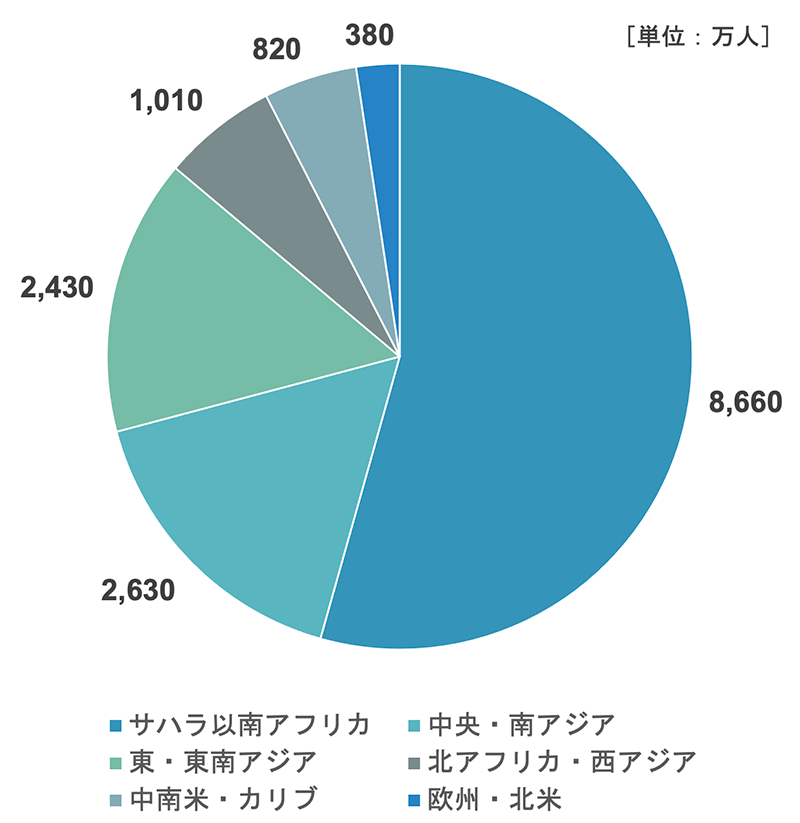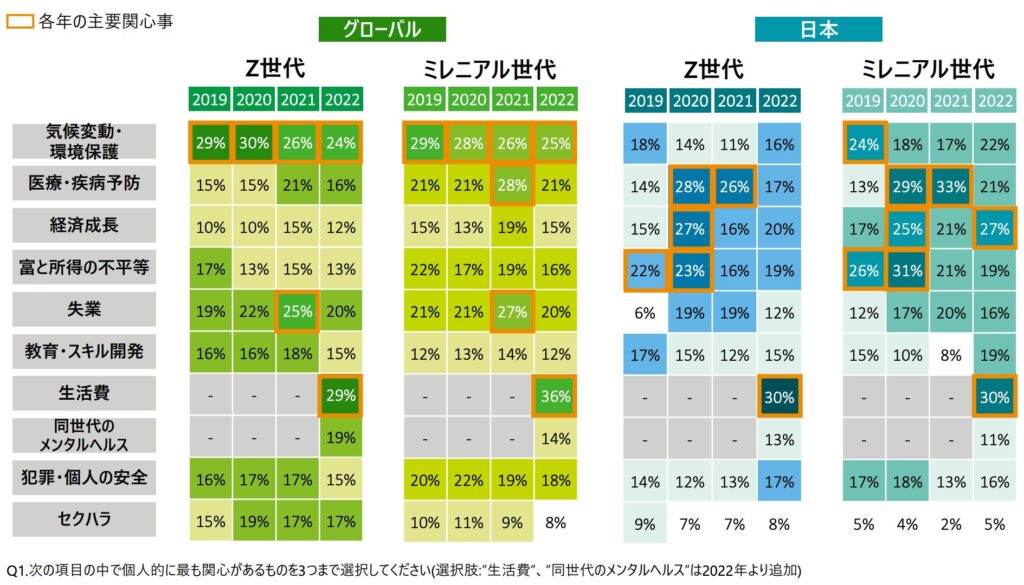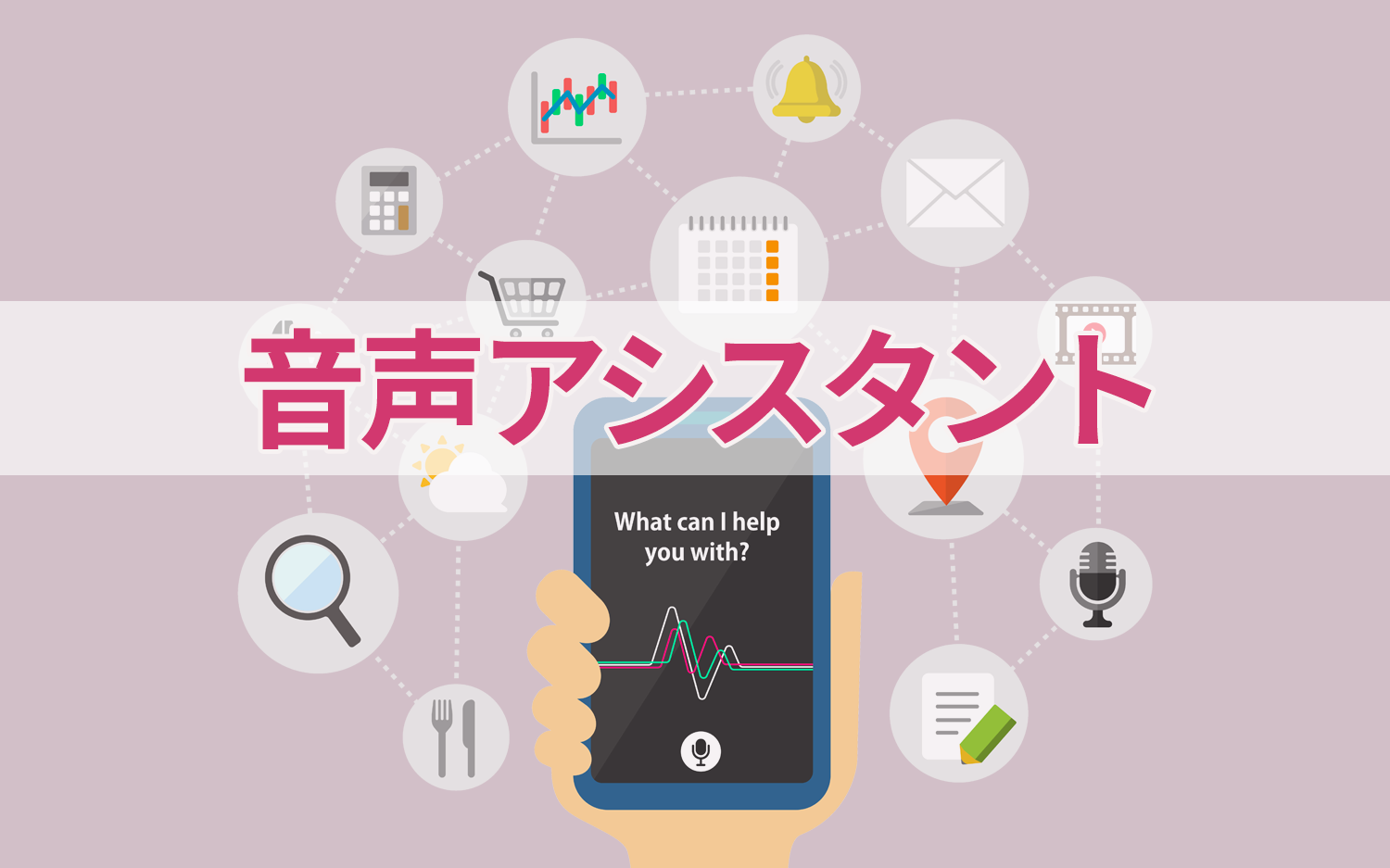'Ethical' refers to an important value that signifies actions that consider the environment and society.
2024/09/27

EthicalIt means 'ethical' and 'moral,' generally referring to actions or choices that consider the environment and society. In simpler terms,It is a mindset of choosing the right actions while considering how one's actions impact the Earth, society, or other individuals.Recently, it has been used in terms like 'ethical consumption' and 'ethical fashion.'
As social issues regarding environmental problems and labor environments worsen globally, the ethical mindset is becoming a...key value for leaving a prosperous society and nature for future generations.It is necessary for both individuals and companies to engage in ethical behavior in their social lives.
In this article, we will thoroughly explain the concept of ethics, including actual case studies from companies, the necessity for it, and the often-confused distinctions between 'sustainable' and ethical.
Table of Contents
Five Cases of Ethical Initiatives in Companies
First, let’s introduce five examples of ethical practices that companies implement.
Case Study 1: Patagonia
The brand 'Patagonia', which deals in apparel and outdoor goods, has been active in environmental protection efforts since early in the industry.They donate 1% of their sales to environmental protection organizations through their program '1% for the Planet.'
Additionally, in their ethical fashion initiatives, they focus on product development...... using recycled polyester and organic cotton, along with a program to collect and recycle old products.is also being developed.
From an employment perspective, Patagonia does not own factories that manufacture their products, so they cannot manage workers' wages.However, they actively utilize factories that have Fair Trade certification in the production of their products.They provide tangible benefits to workers by paying a bonus (premium) for each product manufactured in these factories.
Reference: Patagonia Outdoor Wear
Case Study 2: Starbucks Coffee
The coffee chain 'Starbucks' promises to work with farmers to procure coffee at fair prices.The procurement standards 'C.A.F.E. Practices' that take into consideration workers' rights and environmental protection within the supply chain.and supports sustainable coffee production.
◆ Four Sourcing Criteria of C.A.F.E. Practices
1. It must be high-quality Arabica coffee that meets Starbucks' standards.
2. Producers must receive fair compensation.
3. The rights of those involved in coffee production are protected, and support for the local community is provided.
4. The coffee cultivation environment is preserved, and biodiversity is maintained.
As proof of these efforts, an 'Ethical Sourcing Stamp' is included on product packaging. Additionally,they have eliminated plastic straws and promote the use of reusable cups,actively working on reducing plastic waste.
Reference: Starbucks Coffee Japan
Example 3: Unilever
The consumer goods manufacturer 'Unilever', which deals in food and daily necessities, aims for sustainable product development that targets...... net-zero greenhouse gas (CO2 emissions) across the entire value chain by 2039.They are advancing efforts such as developing products that contribute to reducing CO2 emissions globally, sourcing from sustainable suppliers that do not engage in deforestation, and improving transportation efficiency.
As of the end of 2023, the company has reduced CO2 emissions from all its factories and offices worldwide by 74% (compared to 2015),in addition to achieving 92% renewable energy for its global electricity consumption.It realizes this.
The company also invests in employees and communities and provides fair working conditions.Implemented the 'WAA' (Work from Anywhere and Anytime) system that allows employees to freely choose their working location and time.Developing ethical business models, such as creating products that lead to a reduction in CO2 emissions worldwide.
Reference: Unilever Japan
Case Study 4: Shiseido
The cosmetics manufacturer 'Shiseido' has, since 2013,principally eliminated animal testing in cosmetic development,establishing a strict safety assurance system with unique standards and promoting the development and introduction of alternative methods.
They also focus on product development that takes into account the earth’s environment through sustainable sourcing of raw materials, particularly...... working on the sustainable sourcing of palm oil, which has significant impacts on ecosystems, using RSPO-certified palm oil.
The company is also actively engaged in the protection of marine environments,conducting research on the impact of ultraviolet blockers on coral due to marine runoff, as well as engaging in plastic reduction and recycling activities to address the ocean plastic issue.。
Reference: Shiseido – Shiseido
Case Study 5: Suntory
The alcohol and soft drink manufacturer 'Suntory' actively engages in recycling PET bottles,in 2011, was the first in the domestic beverage industry to establish a 'bottle-to-bottle' recycling system.This system is a circular recycling method that creates new PET bottles from used PET bottles, contributing to reduced use of new fossil-derived raw materials and lower CO2 emissions.
By 2023, the proportion of sustainable materials (recycled materials or plant-derived materials) used in the company's total PET bottle weight in the domestic soft drink business expanded to 53%.The usage ratio of sustainable materials (including recycled or plant-derived materials) has increased to 53%.
The company is also working to protect water resources,An environmental education program called 'Mizui-ku' aimed at children both domestically and internationally.and continues to promote the importance of water to future generations.
Reference: Suntory Holdings
The companies mentioned here are just a small sample, and many businesses both domestically and internationally are currently engaging in various forms of ethical practices.
Three Reasons Why Ethical Practices are Necessary
The ethical initiatives introduced in the previous examples are now particularly notable in消费 and business, being keywords for achieving a sustainable society.They are gaining significant attention in consumption and business as keywords for aiming towards a sustainable society.Here, we will provide a detailed explanation of three reasons why they are gaining attention and are needed.
Reason 1: For Environmental Protection and Sustainability
Currently,Environmental issues such as climate change, depletion of resources, and destruction of biodiversity are becoming serious.the mass production and consumption-oriented economy places a tremendous burden on the environment, and if this continues, the sustainability of the Earth will be in jeopardy.
In such circumstances, ethical actions are necessary to reduce environmental burdens and realize a sustainable society.Firms that engage in ethical initiatives find it easier to gain trust and support from consumers, thereby enhancing brand value.Furthermore, this proliferation of ethical activities prompts consumers themselves to become aware of ethical consumption behaviors, facilitating actions that contribute to building a better society.
Reason 2: To ensure a fair and human rights-respecting working environment
Below is a reference to the statistics related to ...a UNICEF report on child labor.It showcases a graph displaying child labor statistics globally for the year 2020.
◆ Number of Child Laborers Worldwide (2020)

Source:Global Estimates on Child Labor: Executive Summary Japanese version (UNICEF)
In developing countries,Thus, ethical is ‘one of the methods’ by which a sustainable society can be realized.Therefore,respecting workers' rights and providing fair wages and labor conditions through ethical practices...is essential for enhancing social equity.
Through Fair Trade (*) and ethical supply chains,ethical business practices can be established...... enabling producers and workers to receive fair compensation and improving equity across society.
(*): A trade system that aims to improve the living standards and self-sufficiency of vulnerable producers and workers in developing countries by continuously purchasing their raw materials and products at fair prices.(Reference:What is Fair Trade? | Fairtrade Japan)
Reason 3: Due to Changes in Consumer Awareness
Recently, consumer awareness regarding ethical and sustainable products has risen significantly, especially among...the overseas Gen Z and Millennial generations, who have a high concern for environmental issues, demand products and services that are considerate of the environment and society and expect companies to engage in ethical practices.This trend is also expected to strengthen in Japan going forward.
◆ Changes in Concerns Among Gen Z and Millennials (Global/Japan)

Companies that engage in ethical practices can earn consumer trust and support more easily, enhancing their brand value.Furthermore, as ethical activities become widespread, consumers themselves become more aware of ethical consumption behaviors, promoting actions towards building a better society.
Next, let’s delve into the relationship between 'ethical' and 'sustainable.'
Differences and similarities between Ethical and Sustainable.
The term 'sustainable' has also been mentioned several times up to this point.'Ethical' and 'Sustainable' both represent ideas that consider the environment and society, but they approach from different perspectives.Here, we will explain the differences and commonalities between the two.
Differences between Ethical and Sustainable.
Ethical means 'moral' or 'ethical' and focuses primarily on social and humanitarian aspects.It emphasizes the social and humanitarian aspects.Sustainable means 'sustainable', focusing on environmental protection and resource conservation.Ethical actions related to the global environment, human rights, labor conditions, animal welfare, and fair trade.emphasizes how companies and individuals fulfill their responsibilities to society as a whole.
Sustainable means 'sustainable', aiming to minimize environmental impacts while growing society overall.It aims to minimize environmental burdens and maintain resources for the long term.Sustainable initiatives focus on minimizing the burden on the earth’s environment and ensuring the growth of society as a whole.It aims to minimize impacts on the Earth while maintaining environmental resources long-term and fostering societal growth.That is the goal.
This means thatwhile ethical focuses on individual moral actions, sustainable emphasizes a broader perspective on creating a sustainable society.And,ethical is one method to achieve a sustainable society,and therein lies their relationship.
Common Points Between Ethical and Sustainable
Both ethical and sustainable share the common goal of reducing environmental burdens...aiming towards a sustainable future.Additionally,they both emphasize respecting workers' rights and conducting fair transactions.These commonalities lead to a growing number of cases where both ethical and sustainable elements are incorporated into companies' CSR (Corporate Social Responsibility) activities.Cases where both elements are integrated into corporate CSR activities are increasing.are also on the rise.
Ethical and Sustainable have a complementary relationship.
While ethical initiatives are not necessarily sustainable, sustainable activities are not guaranteed to be ethical either. However,both perspectives are essential to realize a sustainable society.For instance, incorporating environmentally friendly production methods while protecting workers' rights is a necessity.
Thus, both have a mutually complementary relationship in realizing a sustainable society.They are mutually supportive in achieving sustainability.are in a relationship of mutual support.
Three Benefits of Ethical Consumption
One concrete action based on the ethical mindset is...'ethical consumption.'There is ethical consumption, which is defined as,the mindset of being conscious of how products are produced, who is involved, and the impacts they create, not just focusing on price and quality..
In recent years,ethical consumption has gained significant attention, as each consumer's purchasing behavior can greatly influence society and the environment.Here, we will discuss three benefits of ethical consumption.
Benefit 1: Contribution to Environmental Protection
Ethical consumption contributes directly to environmental protection by choosing eco-friendly products,reducing plastic waste and controlling CO2 emissions.By purchasing organic products or products made from renewable materials, consumers can reduce the burden on the Earth's environment.
Benefit 2: Maintenance of Social Justice
Selecting fair trade products allows...producers and workers in developing countries to receive fair compensation, thus improving their labor conditions and living standards.Ethical consumption helps maintain social justice.
Benefit 3: Improvement of the company's brand image and credibility.
As modern consumers increasingly care about whether companies fulfill social and environmental responsibilities, companies engaging in ethical consumption can...gain the trust and favor of consumers, improving their brand image.This allows for the appropriate language version of the page to be displayed when users search.This enables differentiation from competing firms.。
Next, we will discuss the challenges faced by ethical consumption.
Three Challenges of Ethical Consumption
While there are numerous advantages to ethical consumption, it also faces several challenges.
Challenge 1: Higher Prices
Ethical products, such as organic and fair trade items, often incur various costs related to certification, management, labor, and transportation,which typically results in higher prices compared to conventional products.If there is no information available and consumers cannot physically access the products, making ethical judgments becomes difficult, ultimately hindering ethical consumption.
Challenge 2: Lack of Information
To practice ethical consumption, necessary information about how products are produced and circulated is required, but this information is not always adequately provided.Moreover, ethical products are seldom available in local stores,Additionally, some companies engage in practices termed as "greenwashing," resembling environmentally friendly behavior for mere appearance.
Without access to product information and the opportunity to handle them, consumers cannot make ethical judgments, making it difficult to engage in ethical consumption.
Challenge 3: Ambiguity in Definitions of Ethical
The very definition of 'ethical' contains a level of abstraction related to 'moral' and 'ethical,'Thus, its definitions and standards vary between consumers and companies.This makes it challenging to determine what is truly ethical.
Moreover, some companies engage in practices known as 'greenwashing,'which give the appearance of being environmentally conscious without actually implementing such practices.This has led to questions regarding credibility, prompting regulatory action in regions such as Europe and the U.S.
Reference: What changes will the global regulations against greenwashing bring? (Yahoo! News, March 8, 2024)
Such challenges particularly hinder the penetration of ethical consumption in Japan,which is one of the factors preventing ethical consumption from gaining traction in Japan.in this market.
Conclusion
With the global goals of the SDGs being set and a sustainable society being sought today,the concept of ethics will become an essential value for companies to grow in the future.is expected to become a necessity.
It is no longer simply an option for companies to fulfill their social responsibilities, consider the environment, and undertake ethical and moral initiatives towards workers and communities.It is a vital component for ensuring business success and sustainability.It is becoming increasingly important.
From now on, ethical values will likely establish themselves as standard and essential aspects of corporate identity, in addition to individual practices.
-
Contact Us
-
Request Info
-
Free Trial
-
Partner System







